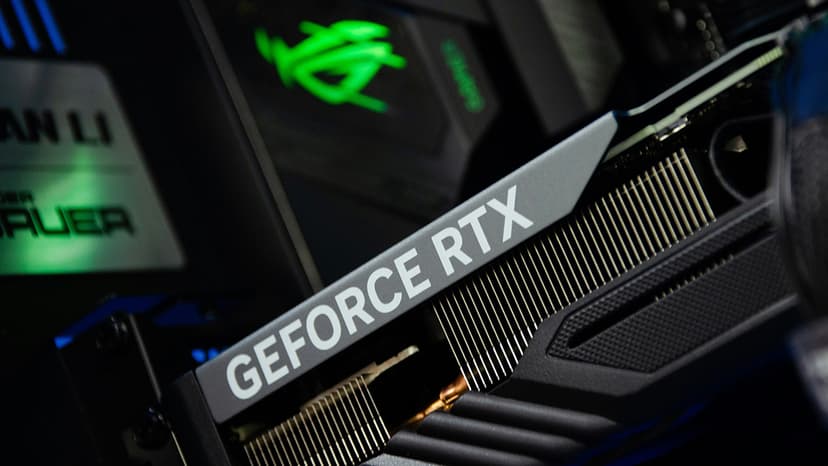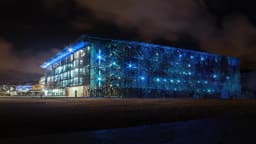Harnessing AI for a Greener Future: DeepMind's Pioneering Efforts in Data Center Energy Efficiency
In the age of big data and cloud computing, data centers are the backbone of the digital world. However, they are also significant energy consumers, contributing to growing environmental concerns. DeepMind, a leader in artificial intelligence, has embarked on a mission to revolutionize how data centers consume energy, aiming to reduce their environmental footprint.
The Challenge of Data Center Energy Consumption
Data centers are critical for storing, processing, and distributing vast amounts of data. They support everything from streaming services to complex scientific computations. However, these facilities require massive amounts of energy for both operational processes and cooling systems to prevent overheating. As global data consumption soars, so does the energy demand of these data centers, presenting a significant environmental challenge.
DeepMind's AI Solution: A Technical Deep Dive
DeepMind has leveraged its extensive expertise in artificial intelligence to address the challenge of high energy consumption in data centers. They have developed a state-of-the-art AI system designed to optimize the energy efficiency of these data-intensive facilities. This system integrates advanced algorithms, machine learning, and a suite of sophisticated techniques to manage and reduce energy usage, particularly in cooling.
Predictive Analysis: The Core of Energy Optimization
DeepMind's solution is anchored in predictive analysis, a complex process that involves several layers of technological innovation:
Data Integration and Processing
The AI system aggregates vast quantities of operational data from various sources within the data center. This includes real-time and historical data on temperatures, server loads, cooling system performance, and external weather conditions. Advanced data processing techniques are employed to cleanse, structure, and prepare this data for analysis.
Machine Learning Models
DeepMind utilizes a range of machine learning models, including deep neural networks, to analyze this data. These models are trained to identify patterns and correlations between different data points. They can forecast future energy needs based on current and historical data trends.
Predictive Outputs
The system generates predictive outputs that estimate future energy consumption under varying operational scenarios. These predictions consider the interplay between server activity, cooling requirements, and external environmental factors.
Optimized Cooling: Real-time Adjustments for Efficiency
DeepMind's AI doesn’t just predict; it actively optimizes:
Dynamic Control Systems
Utilizing the predictive analysis, the AI interfaces with the data center's cooling system through a dynamic control system. This system adjusts cooling parameters in real-time, such as the operation of cooling fans, air handlers, and chillers.
Efficiency and Redundancy Balancing
The AI optimally balances efficiency and redundancy. It ensures that cooling is neither excessive (wasting energy) nor insufficient (risking overheating). The system continuously recalibrates to find the most energy-efficient cooling strategy that maintains safe operational temperatures.
Continuous Learning: The Evolving Intelligence
A standout feature of DeepMind’s system is its ability to evolve through continuous learning:
Feedback Loops
The system incorporates feedback loops that allow it to learn from its actions. By analyzing the outcomes of its previous cooling adjustments and comparing them with predicted results, the AI refines its prediction models and decision-making algorithms.
Adaptive Algorithms
The machine learning models are designed to adapt over time. They incorporate new data and learn from changing patterns in data center operations, environmental conditions, and energy use trends.
Ongoing Optimization
As a result, the system becomes more adept at predicting and managing energy use, continuously improving the data center's energy efficiency.
Conclusion
DeepMind’s advanced AI solution for data center energy optimization represents a significant technological achievement. By combining predictive analytics, real-time optimization, and continuous learning, the system not only reduces energy consumption and costs but also paves the way for more sustainable and intelligent data center management. This approach exemplifies how AI can be a powerful tool in addressing complex environmental and operational challenges.
Real-World Impact
DeepMind has partnered with Google to implement this AI system in several of their data centers. The results have been impressive, with reports of reducing cooling energy consumption by up to 40%. This significant reduction not only leads to lower operational costs but also substantially decreases the carbon footprint of these data centers.
Broader Implications
DeepMind's work extends beyond the confines of Google's data centers. The principles and technologies developed can be applied to various industries where cooling is a significant part of energy consumption. This includes sectors like manufacturing and refrigeration.
Conclusion
DeepMind's innovative use of AI for optimizing data center energy consumption is a remarkable step towards a more sustainable future. By marrying cutting-edge technology with environmental consciousness, DeepMind is not only advancing the field of AI but is also demonstrating how technology can be a force for positive environmental change. As this technology develops and becomes more widely adopted, it has the potential to significantly mitigate the environmental impact of our increasingly data-driven world.












